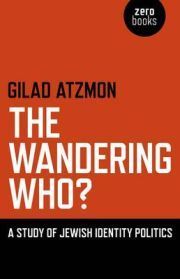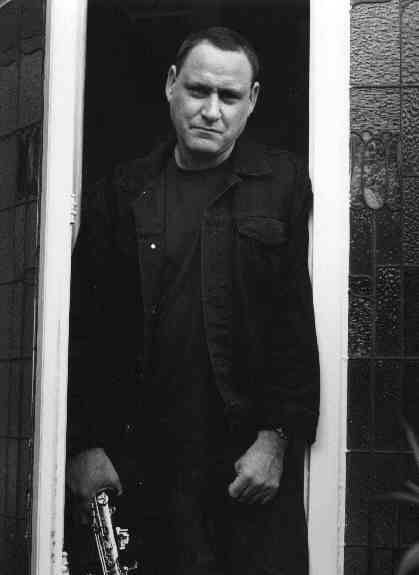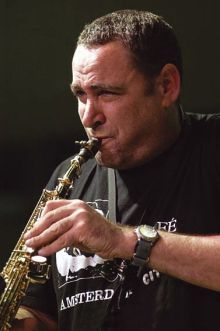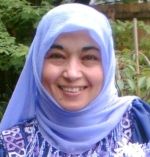
Publisher:
Bonnie King
CONTACT:
Newsroom@Salem-news.com
Advertising:
Adsales@Salem-news.com

~Truth~
~Justice~
~Peace~
TJP
Nov-06-2011 03:10

 TweetFollow @OregonNews
TweetFollow @OregonNews
From Tribalism to Humanism
Nahida Izzat Salem-News.comThe Path to Freedom - A journey from the narrowness of egotism to the splendour of Universalism.
 Courtesy: layoutsparks.com |
(LONDON) - In his new book “The Wandering Who”, Gilad Atzmon reflects on his transforming journey from an IDF  “Israeli”, a racist tribalist, self-ghettoized Zionist, with exclusionist mentality, who was greatly influenced as a child by his “veteran Zionist terrorist” grandfather, into simply a Universalist and Humanist.
“Israeli”, a racist tribalist, self-ghettoized Zionist, with exclusionist mentality, who was greatly influenced as a child by his “veteran Zionist terrorist” grandfather, into simply a Universalist and Humanist.
A courageous and enthralling journey that began in the most unexpected places, in one of the suburbs of occupied Jerusalem, Al Quds, and by no other tool than a musical instrument, a saxophone!
A journey that he didn’t choose initially, rather, he stumbled upon. He came to discover that in the world out there, where gentiles live, raw talents, daring intelligence and breathtaking beauty not only exist but also thrive. This realization took him by surprise; it contradicted his basic supposition of his own and his people’s superiority as Jews. This revelation pressed on him by necessity to take a good look in the mirror, the inner mirror of the self.
Gilad describes how he fell in love and became fascinated with Afro-American music; it was that love that opened the door of escape for him and enabled him to flee the narrowness of the Ghetto of tribalism to the wide world of humanism. As he discovered the brilliance and the captivating beauty of the music played not by Jews, but by gentiles, moreover, most of those musicians were actually black, Atzmon explains: “… It was kind of a revelation. In my world, it was only Jews who were associated with anything good”.

Thus was the beginning of the young Gilad’s voyage.
 |
Gilad’s long journey started as he explains by asking himself serious questions about his own identity. With frankness, dignity and courage, Gilad admits to himself and later to his readers, that he did not like what he saw. He was hit with the fact that he as Jew, might not be the fairest-one-of-all after all, as he was brought up to believe. What he realized is in fact other human beings, who are not Jews but gentiles, might be just as good! This was the first revelation in Gilad’s journey of self discovery.
Gilad reflects on how they learned -as young Jews – to view Palestinians as workers and providers of cheap labour, those nameless, faceless people who roam around:
“We never socialised with them. We didn’t really understand who they were and what they stood for. Supremacy was brewed in our souls, we gazed at the world through racist, chauvinistic binoculars. And we felt no shame about it either”
The breaking point of his attachment was his visit to Ansar prison camp in South Lebanon in 1994. His IDF orchestra team was invited to visit. Gilad describes how this journey affected him and changed him forever: "As we continued past the barbed wire I continued gazing at the inmates and arrived at an unbearable truth: I was walking on the other side, in Israeli military uniform. The place was a concentration camp. The inmates were the “Jews” and I was nothing but a “Nazi”".
He then goes on to tell the tale of the last straw that broke the camel’s back: “while I contemplated the resonance of my uniform, trying to deal with the great sense of shame in me, we came to a large, flat ground at the centre of the camp. The officer guiding us offered more platitudes about the current war to defend our Jewish haven. While he was boring us to death with these irrelevant Hasbara (propaganda) lies, I noticed that we were surrounded by two dozen concrete blocks each around 1m² in are and 1.3m high, with small metal doors as entrances. I was horrified at the thought that my army was locking guard dogs into these boxes for the night. Putting my Israeli chutzpah into action, I confronted the officer about these horrible concrete dog cubes. He was quick to reply: “these are our solitary confinement blocks; after two days in one of these, you become a devoted Zionist!. This was enough for me. I realized that my affair with the Israel state and with Zionism was over”.
Gilad then goes on to say: “it took me another ten years before I could leave Israel for good. During that time, however, I began to learn about the Israel-Palestine conflict, and to accept that I was actually living on someone else’s land. I took in the devastating fact that in 1948 the Palestinians hadn’t abandoned their homes willingly –as we were told in school- but had been brutally ethnically cleansed by my grandfather and his ilk.”
Discovering these exterior realities around him helped him to understand the atrocious role his people -including his much admired grandfather--played in creating the catastrophe of the Palestinian people.
Then came the time when young Gilad thirsted for answers and needed to dive deeper in his own self; he began to reflect upon the question of identity, and what it meant to him to be defined as a Jew.
After years of observation and reflection, he came to notice that those who call themselves Jews could be divided into three main categories:
- Those who follow Judaism.
- Those who regard themselves as human beings that happen to be of Jewish origin.
- Those who put their Jewish-ness over and above all of other traits.
Atzmon is more puzzled and concerned with people in the third category, as the first two are pretty self evident.
Gilad's view is that the people in the third category are the manifestation of what early Zionists have defined and envisaged. Chaim Weizmann, a prominent early Zionist said “There are no English, French, German or American Jews, but only Jews living in England, France, Germany or America” Gilad explains: “In just a few words, Weizmann managed to categorically define the essence of Jewish-ness. It is basically a “primary quality”. You are maybe a Jew who dwells in England, a Jew who plays the violin, or even a Jew against Zionism, but above all else you are a Jew."
This definition takes me personally a few years back, when I was intrigued by the fact that some of our Jewish supporters in the solidarity movement were atheists, yet they also defined themselves as Jews. No matter how much I turned this in my head, it just didn’t make sense; how can one be an atheist Jew?
So I asked one of my Jewish friends one day: “what do you mean when you say you are Jewish? Since you reject faith and disbelieve in Judaism as a religion, and since your culture is more Western-European than it is African-Jewish or Middle-Eastern-Jewish or any other Jewish culture, you are not Jewish by race, as there is no such a thing as Jewish race or Jewish genes, there is no unified Jewish history, and even your language is English not Hebrew? So what is it that makes you still define yourself as Jewish”?
My friend was taken aback by the question, he paused for some time, then he said something I would never forget, he said: “ I don’t know, I don’t know how to explain it, it’s just something you know, something you feel inside you”!
Perhaps if my friend and other Jews who define themselves as atheist Jews, if they would allow themselves the freedom to reflect upon and to explore such question and search deep inside them as Gilad did, maybe they would understand why are we--who ask these questions, are so perplexed by their definition.
From an outsider perspective, the word atheist Jew does not correspond to any logic, common sense or rationality, unless of course, one see him/herself as exclusively different as defined by Ultra Orthodox Chabad; i.e having a distinctive Neshama "Jewish soul", or special Jewish genes, which surely is not the case of our atheist friends!

Gilad was brave enough to put himself on trial and to ask the daring questions, who am I? why am I defined as a Jew? and what does it really mean to be a Jew?
 Courtesy: soundsgoodtome.us |
By asking these questions, one would not expect to find answers in any books of course. The answer can only be found deep within. It requires an inner journey.
Gilad pondered and wondered, he asked the questions then he pursued the answer, “The Wandering Who” is a summary of his journey; of spiritual reflection and of intellectual discovery.
His book is a profound testimony of the resilience, strength and beauty of the human spirit and the boundless aptitude of human potential.
Despite the many years of indoctrination, Gilad dared to ask questions that many of us do not dare to ask. Instead of looking outside to find explanations and answers, he looked within, he tried to identify that which might be problematic and harmful. He came to admit before the world that his own grandfather, whom he admired and who had “tremendous influence” on him as a young person, is actually a terrorist and murderer. He came to discover and then to admit that his own people whom he thought were the best in the world and whom he was taught it's only them "who were associated with any thing good", were in fact people who committed crimes of theft, terrorism and ethnic cleansing against another people.
He came to discover and admit that many of the people who call themselves Jews, who live in many countries of the world, and who blindly support an entity that engages in acts of terrorism and war crimes are also implicated.
Telling the truth can be daunting sometimes, and indeed it can expose the truth teller to all sorts of harmful attacks, however, facing the truth is far more excruciating, agonizing and life shattering experience.
It requires the embarking on an overwhelming inner journey of self discovery. If we find the courage within ourselves to take up the challenge, the outcome would be spectacular... and life would become a magnificent abode of bliss and contentment.
Through his gripping experience Gilad revealed that the change we seek and desire in order to improve our conditions begins with making the change within us. Change is possible, attainable, straightforward and available to all. It begins by being open and honest with ourselves, to allow ourselves to explore our inner core, and in particular facing that which is ugly; arrogance, ego, selfishness... within each and every one of us.
Through his fascinating and extraordinary journey Gilad came face to face with the Qur’anic statement of truth:
Åöäøó Çááøóåó áÇ íõÛóíøöÑõ ãóÇ ÈöÞóæúãò ÍóÊøóì íõÛóíøöÑõæÇ ãóÇ ÈöÃóäúÝõÓöåöãú
“Verily never will God change the condition of a people until they change themselves (what is within their own souls)” (Qur’an; 43:11)

Gilad realized that one cannot be a tribalist and a humanist simultaneously, so he chose humanism and universal values. He severed his ties with racism and supremacy, he departed from loyalty to the tribe, he refused to be a sayan at the expence and suffering of others. He offered his loyalty to the whole of humanity. The high values of equality, justice and humanism became his passion.
By doing so, Gilad came to affirm and to live by, yet again, another Qur'anic statement of truth:
“Ye who believe! Stand out firmly for justice, as witnesses to God, even as against yourselves, or your parents, or your kin, and whether it be (against) rich or poor: for God can best protect both. Follow not the desires (of your hearts) (4:135)
“God commands justice, the doing of good, and kindness to kith and kin, and He forbids all shameful deeds, and injustice and antagonism: He advices you, that ye may be reminded.” (16-90)
One can and must love and show kindness to his kin and clan, but one should NEVER put his sentiments above JUSTICE and HUMANISM.

For his honesty and integrity, for telling the truth even when it hurts, and for siding with justice even against his own clan, Gilad was vilified by Zionists and anti-Zionists alike. For them, he has committed the worst sin of all, he is a mosser.
Instead of looking at his journey with curiosity and open-mindedness; instead of listening to his universal message of equality, and instead of examining his work that points at the ills within, his adversaries look at it through the eyes of vindictiveness, hatefulness and bottomless animosity.
Gilad's adversaries exhibit more understanding, rationality, courtesy and civility even when dealing with Zionists, soft and hard core.
As we know, Zionists and soft Zionist are often invited and welcomed to some of the anti-Zionists activities and events--under the pretext of reaching out to the Jewish community. As we know also, some of those Zionists who attend such events might actually be IDF members who trained to commit murder. Unlike them Gilad has no weapons except his words and saxophone, yet he--not the hard core militant British Zionists, is the one who is ostracized, chased and chastised by some self claimed "friends of Palestine".
He is portrayed as the worst “enemy of the Jewish people” rather than the one who offers his honest voice to help and heal through his experience and sincerity.
He was followed around the globe, with pickets, leaflets, deluge emails and sinister phone calls trying to discredit him, trying to prevent people from listening to him and trying to smother his voice of liberation, that calls for the tearing down of the self erected ghetto walls of mind and soul.

From an Islamic perspective, Gilad’s journey is what Muslims call the “Greater Jihad”, the inner journey that one embarks upon to examine one's purpose in life, one’s identity, one’s thoughts, one’s intentions, and one’s innermost hidden harmful characteristics. Such perpetual reflection helps us to identify and face our dark side, contain our ego, curtail our greed, and work with awareness to replace or transform such ills into a more constructive, caring, compassionate and generous qualities.
It is my personal feeling that Gilad, a Humanist of Jewish ancestry, by imposing self exile and by uprooting himself from his place of birth, through his journey of self discovery, and through the hard questioning of his identity, his morality and his intentions, had earned his redemption as an ex-IDF occupier.
From my modest perspective as an exiled Palestinian and activist, Gilad had washed away his sins of being a member of IDF in the past, he has cleansed his conscience by choosing who he wants to be not by who he found himself being.
I welcome Gilad as a brother in humanity, and as a Palestinian-born visionary.
I hope and pray that his chosen exile and my forced exile would both end one day by our return back home to our beloved and liberated Palestine, and with us all those millions of refugees, and those good Jewish Palestinians like Gilad who chose to extract themselves rather than being part of a criminal and illegitimate entity.
Welcome brother Gilad, welcome brother "Jihad" to the family of humanity, and welcome a dear son of Palestine.
.
--
“To smile when confronted with the most severe oppression, is an act of Resistance rooted in unparalleled beauty.”
~ Jonathan Azaziah
"And I, a Palestinian from occupied Palestine, refuse to share my homeland with Zionist colonizers"
~ Reham Alhelsi
"Facts" do NOT need laws to enforce or defend them, what they need is research to prove or disprove them"
“When a man who is honestly mistaken hears the truth, he will either cease being mistaken, or cease being honest.”
_________________________________
 Nahida Izzat is a Jerusalem-born Palestinian refugee who has lived in exile for over forty two years, after being forced to leave her homeland at the tender age of seven in 1967, during the six-day war. She has a degree in mathematics, but art is one of her favorite pastimes. She loves hand-made things and so makes dolls, cards, and most of her own clothes. She also writes poetry, participates in written dialogues and believes in building bridges, not walls.
Nahida Izzat is a Jerusalem-born Palestinian refugee who has lived in exile for over forty two years, after being forced to leave her homeland at the tender age of seven in 1967, during the six-day war. She has a degree in mathematics, but art is one of her favorite pastimes. She loves hand-made things and so makes dolls, cards, and most of her own clothes. She also writes poetry, participates in written dialogues and believes in building bridges, not walls.
She started writing when her friends insisted she should write about her memories, experiences and feelings as a Palestinian.When she did it all came out sounding—she was told—like poetry! So she self-published two books: I Believe in Miracles and Palestine, The True Story.
Her dream is to return back home to a free and liberated Palestine.
If you like poetry and are intrigued by the notion of helping the Palestinian people and learning more, you can purchase Nahida's books, I Believe in Miracles and Palestine, The True Story by visiting:
I Believe in Miracles: a Collection of Palestinian Poems
ISBN 13: 9780954839109 | ISBN 10: 0954839102
£12.99 paperback Nahida Izzat (2004)
You can write to Nahida : nahidaexiledpalestinian@gmail.com
 |
 |
 |
 End Israel's Unwarranted Murder of Kids |
Articles for November 5, 2011 | Articles for November 6, 2011 | Articles for November 6, 2011

Quick Links
DINING
Willamette UniversityGoudy Commons Cafe
Dine on the Queen
Willamette Queen Sternwheeler
MUST SEE SALEM
Oregon Capitol ToursCapitol History Gateway
Willamette River Ride
Willamette Queen Sternwheeler
Historic Home Tours:
Deepwood Museum
The Bush House
Gaiety Hollow Garden
AUCTIONS - APPRAISALS
Auction Masters & AppraisalsCONSTRUCTION SERVICES
Roofing and ContractingSheridan, Ore.
ONLINE SHOPPING
Special Occasion DressesAdvertise with Salem-News
Contact:AdSales@Salem-News.com


Salem-News.com:

Terms of Service | Privacy Policy

All comments and messages are approved by people and self promotional links or unacceptable comments are denied.
[Return to Top]
©2025 Salem-News.com. All opinions expressed in this article are those of the author and do not necessarily reflect those of Salem-News.com.